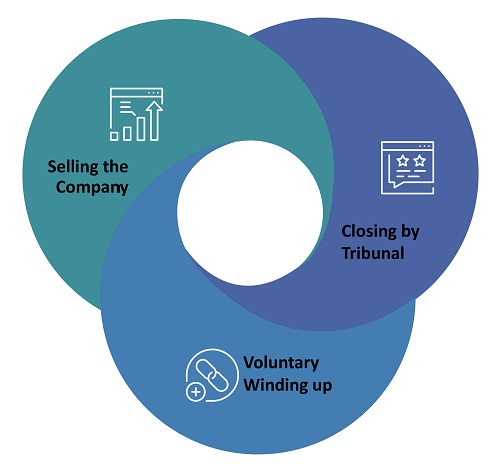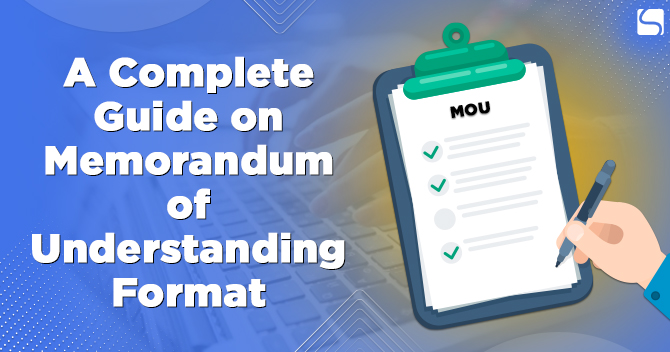Complete guide to winding up a Private Limited Company

Dashmeet Kaur | Updated: Feb 28, 2020 | Category: Compliance
Businesses can collapse like a house of cards, so it is better to close down the Company under critical conditions. The procedure for closing a Company is a complex yet indispensable task. It is even more difficult to wind up a Private Limited Company. Section 270 of Companies Act, 2013 lay out the provisions to wind up a Company either voluntary or by Tribunal. This document covers all the factors to be kept in mind while winding up a Private Limited Company and entails complete information about both the methods of closing.
Table of Contents
Reasons for the closure of a Private Limited Company
A Private Limited Company is an artificial judicial entity that needs to meet various compliances like regular filing of Income Tax & Annual Return, appointing Auditor and more. In case of non-compliance, the Company has to bear some penalties or disqualification of the Directors. It is prudent to wind up the business under such circumstances.
An array of reasons can lead to the closure of a Private Limited Company apart from bankruptcy. The causes can range from internal to external factors. If the Company does not shut down properly, then it shall have to spend a hefty amount on standard Audit filings and pending compliances on an annual basis to persist as a legal entity. Therefore, the procedure of winding up a Private Limited Company must be executed in a legitimate way.
Conditions for winding up a Private Limited Company by Tribunal
Companies Act, 2013 has listed the following scenario under which the Tribunal can cease the operations of a Private Limited Company:
- If a Company is unable to pay its debts;
- In case, the Company has passed a special resolution that it will be wound up by the Tribunal;
- If the Company has acted against the interest of the security of State, integrity and sovereignty of India. Also, if it is the matter of contravening public order, morality or decency;
- On the condition that the Tribunal has ordered to wind up the Company under Chapter XIX;
- In case, the Company hasn’t filed the Annual Returns or financial statements with the Registrar for the previous five consecutive financial years;
- If the Tribunal believes that the affair of a Company has been conducted in a fraudulent/unlawful way;
- If the Tribunal has the opinion that it is justified and equitable to wind up the Private Limited Company.
The procedure of closing a Public Limited Company by Tribunal
Here are the steps involved in winding up a Company by Tribunal:
Step 1: The creditor needs to file a petition to the Tribunal and affix the Company’s Statement of Affairs along with that.
Step 2: On receiving the Application for winding and petition, the Tribunal shall either accept or reject it. Thereby, pass an order within 90 days from the date of petition’s receipt.
Step 3: If a person files the petition other than the Company, then the Tribunal can dismiss the Application.
Step 4: After an extensive assessment, if the Tribunal thinks that the Company should go for winding up, it shall pass an order to the Company to file the objection with Statement of Affairs within 30 days.
Step 5: The Tribunal shall appoint a Liquidator to carry out the winding process. The Liquidator shall take his course of action; thus, examines the books of accounts, review the sale of assets and performs other essential functions. He or she will further prepare a Draft Report for the approval of the winding-up committee;
Step 6: Once the committee approves the Draft Report, the Liquidator shall submit its Final Report to the Tribunal to pass an order of winding-up.
Step 7: The Liquidator shall forward a copy of the order to the Registrar of Companies within 30 days. In case he/she fails to do so, it will lead to a penalty.
Step 8: After complete satisfaction, the ROC shall approve the winding up of the Private Limited Company. Thereon, the Registrar will strike the Company’s name from the Register of Companies and sends a notice in the Official Gazette of India for publication.
Conditions for voluntary Winding-up
The shareholders of a Private Limited Company can choose to wind up the business if:
- The Company has passed a special resolution for winding up in a Board Meeting;
- Or, if the Company’s duration specified in the Article of Association (AoA) expires.
Types of Winding up a Private Limited Company

Process of voluntary closure of a Public Limited Company
The voluntary procedure is a simpler mode of winding up the Company. Follow the steps given below if you also want to close your company voluntarily:
- Pass a special resolution either in the Board Meeting for a voluntary decision or in the General Meeting for the events prescribed in AOA.
- Provide a Company’s declaration of solvency for the payment of unpaid debts. Thereby, submit the declaration to ROC along with the Auditor’s report and registered value’s report (in case of evaluation of Company’ assets).
- Appoint a Liquidator to undertake the winding-up process that shall start from the date of passing the resolution.
- The Liquidator shall draft a Report of winding up and summon a General Meeting to settle down the final winding up of accounts. If the majority of members show their consent, a resolution shall be passed.
- A Liquidator shall then send a copy of statements to the Registrar of Companies and apply to the Tribunal with the Final Report.
- The Tribunal shall pass the order of winding up after assessment. Thereby, the Liquidator will send a copy of the order to ROC within 30 days else it will have to bear a penalty.
- Once the ROC gets fully satisfied, it shall approve the winding up of your Private Limited Company and strike of its name from the Register. Also, the ROC will send the notice for publication in the Official Gazette of India.
Conclusion
In case you need legal competency in carrying the winding-up procedure of your Company, look no further than Swarit Advisors. We provide end-to-end assistance in closing down your business operations and complete the entire process with 90 working days.
Also, Read: What is the Procedure of Conversion of Private Company into LLP?.














